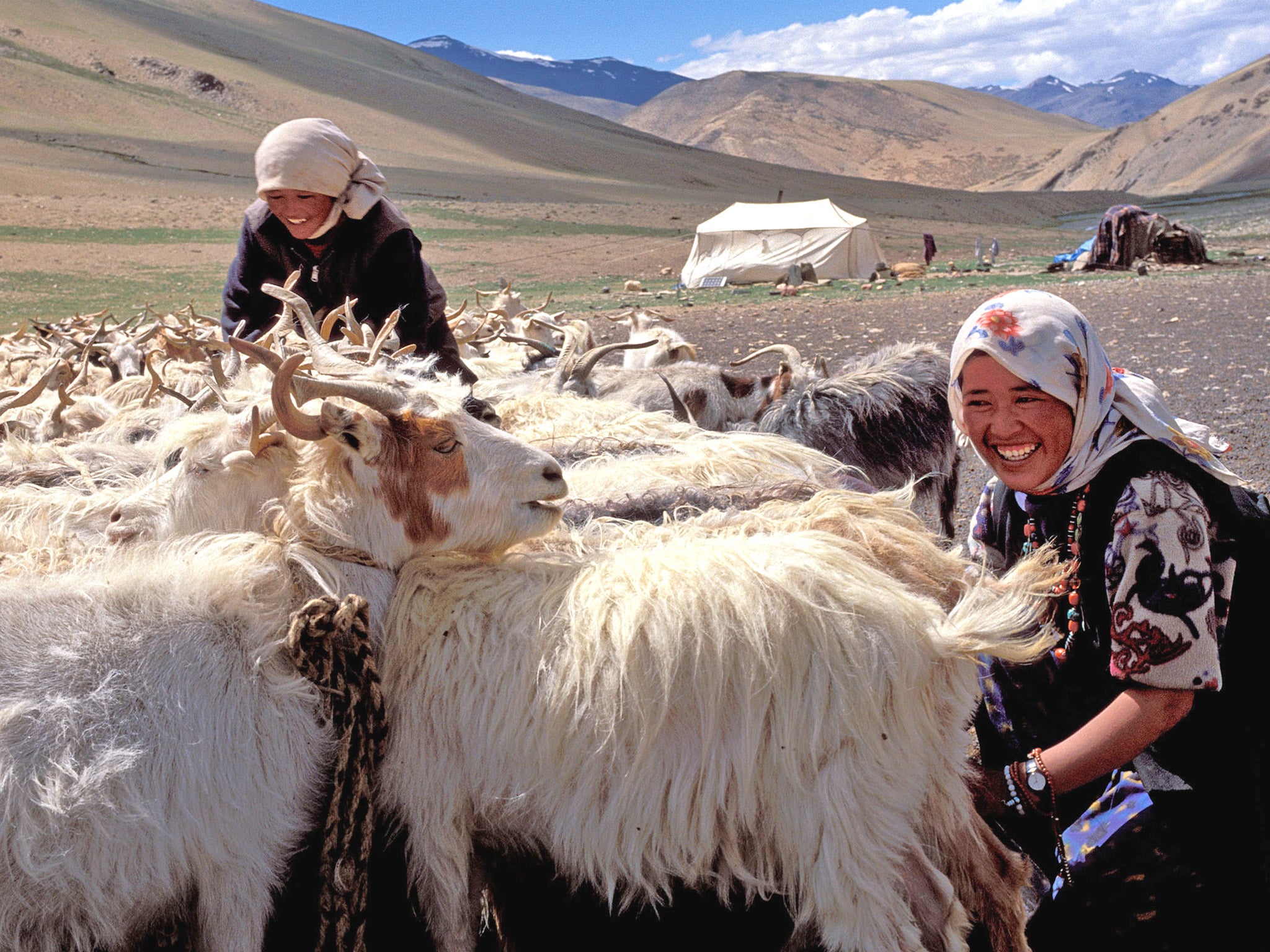Thousands of Pashmina goats perish in India after heaviest snowfall in decades

Your support helps us to tell the story
This election is still a dead heat, according to most polls. In a fight with such wafer-thin margins, we need reporters on the ground talking to the people Trump and Harris are courting. Your support allows us to keep sending journalists to the story.
The Independent is trusted by 27 million Americans from across the entire political spectrum every month. Unlike many other quality news outlets, we choose not to lock you out of our reporting and analysis with paywalls. But quality journalism must still be paid for.
Help us keep bring these critical stories to light. Your support makes all the difference.
Thousands of Pashmina goats, the source of famed shawls and blankets and a mainstay of the local Himalayan economy, have perished in northern India in the some of the heaviest snowfall in decades.
Reports say that as many as 25,000 of the animals, along with other livestock, have starved and frozen to death in the Ladakh region in conditions not seen for 50 years. Local officials have urged the state government of Jammu and Kashmir must do more to send in emergency supplies to prevent further losses.
“I have extensively toured the area for a week. There are still some areas where there is too much snow and they are out of reach,” local official Rigzin Spalbar, chairman of the Leh-based Ladakh Autonomous Hill Development Council, told The Independent. “Where there are roads we are sending in fodder”
The snowfall has settled in the remote Changthang area in the southeast of the state, close to the border with China and Tibet. It is there that nomadic Drokba people raise the heavily-coated goats and gather their soft wool, six times finer than human hair, which is then sold on to producers of shawls, sweaters and blankets.
Mr Spalbar said last autumn officials had dropped off fodder for the winter as well as feed supplements, in an attempt to tackle any hardship. But with the herders unable to provide any fodder whatsoever, the feed supplements by themselves are making the animals suffer from diarrhoea.
Much of Jammu and Kashmir’s largely Buddhist Ladakh region is harsh, arid and forbidding. Most is located at more than 10,000ft and the winter temperature can drop to -35C.
The Changthang area, considered a dry desert, is located at 14,500ft and rarely sees rain. Most fodder collected by the nomads comes from natural vegetation. Their sparse harvests of wheat and barely require ingenious irrigation systems based on glacial meltwater.
Five years ago, thousands of the prized semi-feral goats died in winter weather that had not been seen for a generation. But local reports have suggested that the nomads have suffered a double blow this year; not only were the winter snows even worse than in 2007/8, but last year’s summer was even more dry than usual, meaning the available vegetation was even more scant.
Dr P Angchok, a retired official who formerly had oversight for sheep rearing in the region, said parts of the Changthang were up to 16,000ft high. “This winter the temperature was as low as -25C. Even during the day time the temperatures does not get above freezing,” he said.
The shawls and garments produced from the wool of the Changthangi goats may have have been prized for more than 1,000 years. Wall paintings in the 11th-century Alchi Monastery, to the west of Leh on the road to Srinagar, portray people wearing intricately-embroidered shawls. They were once the preserve of Kashmiri and Ladakhi royalty.
The word pashmina comes from the Persian word pashm, or wool, and refers to the finest undercoat of the goats. A regular shawl requires the wool of three animals.
For the nomadic community, the huge freeze and the subsequent deaths of the goats are expected to have grave consequences. Padma Tashi of the Young Drokba Association, a Buddhist group, said the herders relied entirely on the goats for their livelihoods. It is unclear to what extent it will impact production of pashmina products.
“It’s like 100 per cent,” he said. “For them this is a nightmare. This is going to be like losing their job or something.”
Officials in Leh, the district capital, say they have contacted the provincial government asking for air-drops of fodder. No-one from the provincial government, which has its winter capital in the city of Jammu, responded to queries. Mr Spalbar said: “I have written to the state government asking them to send planes for air drops. I have not yet received a response.”
Subscribe to Independent Premium to bookmark this article
Want to bookmark your favourite articles and stories to read or reference later? Start your Independent Premium subscription today.
Join our commenting forum
Join thought-provoking conversations, follow other Independent readers and see their replies
Comments